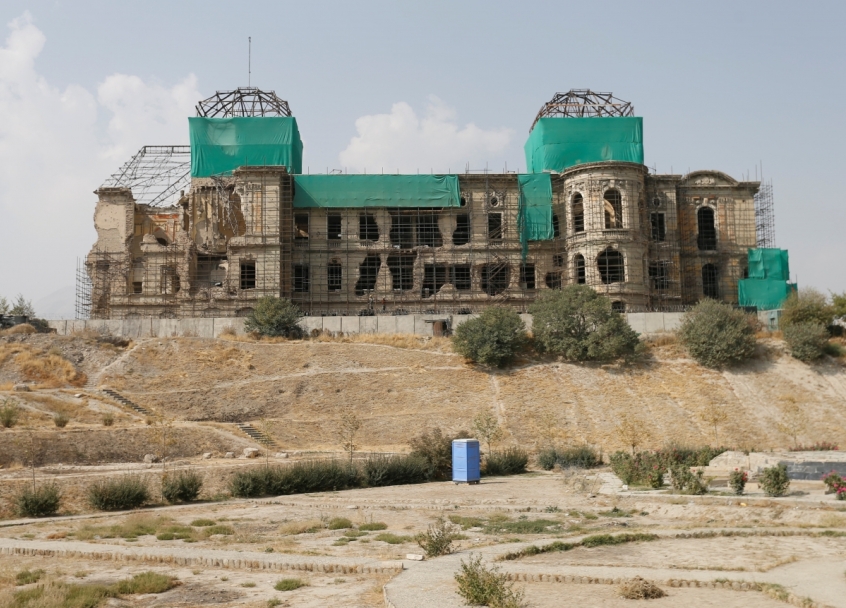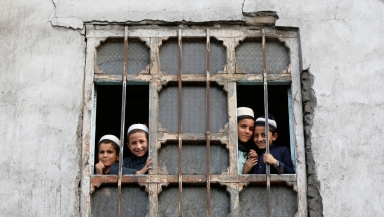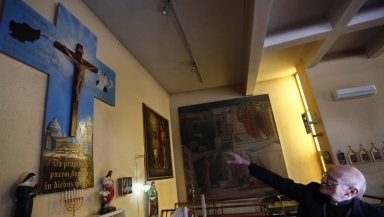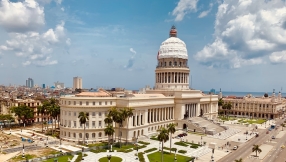
Non-Muslims in Afghanistan continue to suffer violence and harassment and there are still no public places of Christian worship.
Just a few places of worship for Sikhs, Hindus, and Jews remain but the last public Christian church in Afghanistan was destroyed in March 2010, the report says.
Conversion from Islam to another religion is apostasy punishable by death for men and life imprisonment for women.
Hindus, Sikhs, Bahais, and Christians make up about 0.3 per cent of the 32.6 million population in Afghanistan. There is one Jewish person left in the entire country, according to the latest International Religious Freedom report from the US State Department. His name is Zablon Simintov. He is a businessman whose wife and two daughters live in Israel.

The report says individuals who convert from Islam continued to risk annulment of their marriages, rejection by their families and communities, loss of employment, and possibly the death penalty.
There were no reports of prosecutions for blasphemy or apostasy in 2015 but one person convicted of blasphemy in 2013 is still in prison serving a 20-year sentence.
Afghanistan is mainly Sunni Muslim and there are 3,224 registered madrassas and Koran learning centres with 340,000 students.
Members of the Bahai community reported continued legal discrimination against them, particularly on the question of marriages between Bahai women and Muslim men.
Killings and beheadings of minoirities, including Shia Muslims, by extremists continued throughout the year. The Taliban warned mullahs not to perform funeral prayers for government security officials.
In March there was international outrage when a mob killed a woman named Farkhunda in Kabul following an allegation, later reported to be false, that she had burned pages of a Quran. In November a mob stoned a young woman named Rokhshana to death in Ghor, reportedly for attempting to elope with one man after a forced marriage to another.

"Non-Muslim minorities such as Sikhs, Hindus, and Christians continued to face harassment and, in some cases, violence. Because religion and ethnicity are often closely linked, it was difficult to categorize many incidents as being solely based on religious identity," the report says.
"Christians said public opinion continued to be hostile toward converts to Christianity and to the idea of Christian proselytizing. They said members of the small Christian community, many of whom had converted to Christianity while living in third countries, continued to worship alone or in small congregations in private homes out of fear of societal discrimination and persecution."
Most international forces have been withdrawn from Afghanistan, allowing the Taliban to regain lost ground. The renewed fighting has led to a heavy death toll. More than 11,000 civilians were killed last year alone.
Open Doors lists Afghanistan at Number Four on its World Watch Christian persecution chart. "There is no visible church in Afghanistan; all Afghan believers are secret converts from Islam," the charity says. "Leaving Islam is seen as apostasy, which brings shame on the family and community. If someone is suspected of converting to Christianity they will be arrested. Buildings that are suspected of being used by the underground church are closed down or damaged. Even the few remaining expatriate Christians are at risk; three South African Christians who were working for a relief organisation were killed when their guest house in Kabul was attacked."













